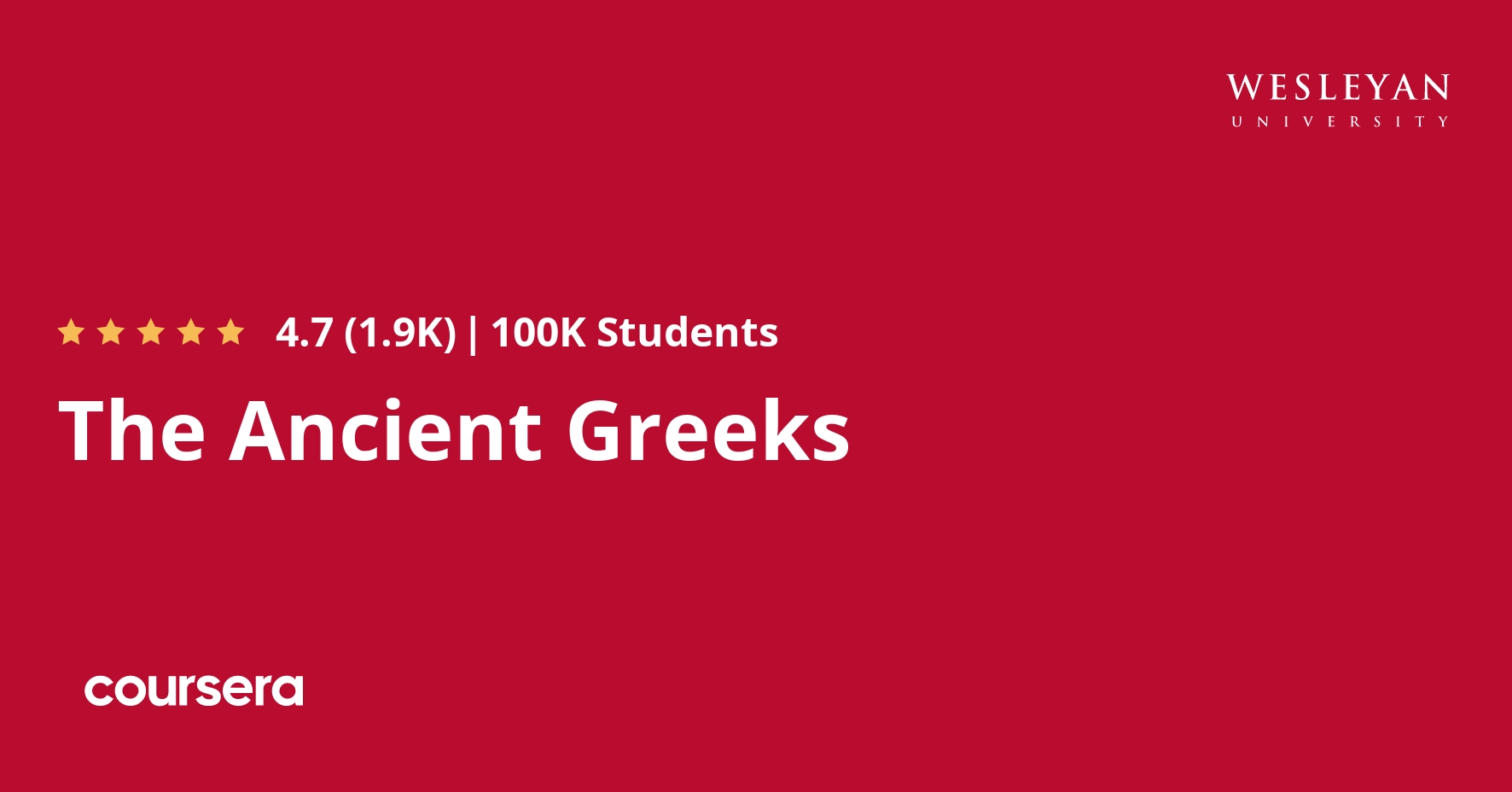Description
This is a survey of ancient Greek history from the Bronze Age to the death of Socrates in 399 BCE. Along with studying the most important events and personalities, we will consider broader issues such as political and cultural values and methods of historical interpretation.
What you will learn
Prehistory to Homer
We will start our first module with an overview of the physical and geographical setting for our class – “the Greek world.” Then we will move rapidly across many centuries, beginning with two Bronze Age civilizations: Minoan on the island of Crete, and Mycenaean on the mainland. Our evidence for both of these is almost purely archaeological, and so you can consider the ways scholars have interpreted material remains to build a picture of how the societies were structured. After the collapse of Mycenaean civilization, there followed the so-called Dark Ages. These four centuries pose for us the challenge of reconstructing what happened during a long period that has left relatively little evidence. We will conclude this module with an all too brief consideration of the two magnificent Homeric epics, the Iliad and the Odyssey, whose stories and heroes became essential elements in Greek cultural identity.
The Archaic Age (ca. 800-500 BCE)
Module 2 brings us into the turbulent, creative Archaic Age, during which the Greeks acquired a cultural identity distinct from that of their neighbors in the Eastern Mediterranean. They developed their characteristic form of community, the polis, or “city-state.” With a rebound in population, moreover, they founded numerous colonies abroad. In addition, the Greeks recovered literacy, which enabled them to write down law codes for the poleis. The newly established communities had a new form of military organization, the hoplite army, manned by citizen-soldiers. The lyric poets of that era wrote verses that address such great social changes, and also offer vivid accounts of individuals’ emotions and opinions. The module ends with another poet, Hesiod, somewhat later and less famous than Homer, but also very significant. His subjects range from the origins of the cosmos and the gods, to personal ethics, to practical advice about farming.
Two City-States: Sparta and Athens
In Module 3 we will analyze some major political developments in the Archaic Age, which were largely responses to the huge societal changes discussed in Module 2. We will focus on Sparta and Athens. Sparta evolved into a unique hoplite-polis, famed for strict discipline and military prowess. Athens followed a very different path, showing the first traces of democracy. We will also observe how tyrannies arose in many poleis, often, paradoxically, to the community’s benefit. In fact we can now consider the historical effect of individual leaders, like the renowned lawgivers, Lycurgus of Sparta and Solon of Athens. Both men came to be revered as the “founding fathers” of their poleis. Both men also belonged to the legendary Seven Sages, who were famed for their wisdom. The module concludes with a consideration of Peisistratos, who ruled Athens as a tyrant in the mid-6th-century BCE and led the Athenians to new levels of power and prosperity.
Democracy. The Persian Wars
Module 4’s sessions will begin by focusing on the crucial decade at the end of the 6th century, when the Athenians instituted full democracy. In fact the development of democracy is one of the principal reasons to study Greek history. Athens was also the adopted home of Herodotus, who was the first author in the West to characterize his writing as history. Herodotus chose to recount the first great clash of cultures in the West, the conflict between Greece and Persia, and his story goes far beyond the war and its battles. He was deeply concerned with how societies define themselves. The breadth of his interests, his insight and his good humor all contribute to the appeal of his work. We will also observe how Athens, under the leadership of the brilliant general Themistocles, began to transform itself into a formidable naval power.





